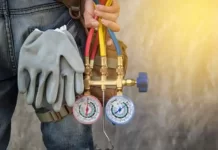Intensive outpatient treatment is a type of substance abuse rehab in which patients are required to visit the facility for their sessions a number of hours a day, several days a week. It’s much more intensive than the standard outpatient program. However, it doesn’t require patients to stay at the facility for the duration of the treatment, which is what happens with residential or inpatient treatment.
When do the sessions take place?
It will depend on your schedule. You can sort out that detail with your counselor so you can pick timeslots that are convenient for you. For instance, some pick slots very early in the day so that means they go before work. Others pick evening time slots, so they go after they’re done with work. Think about whichever option you’re more comfortable with and start there. Most programs are held during weekdays, unless you talk to your counselor and have them scheduled on a weekend. However, that will depend on your counselor’s availability as well.
How long does the program last?
A typical program might last for about 90 days. However, not all Wisconsin IOP treatment options you’ll find will be the same, so some programs might run a few days shorter or be much longer. Your decision will depend on the severity of your condition. The general rule of thumb is, the worse your addiction is, the longer you’ll need to stay in treatment. That’s how long it would take to get your health, mind, habits, and more back on track.
What services do they offer?
Some of the programs might offer individual counseling and medication management. Others include case management, vocational training, and psychiatric screening. Some might introduce you to support groups, too, which is ideal as it can help you find and build connections. Having people in your support group who know what you’re going through is a source of comfort and strength. Don’t discount the power and help that can bring to bear on your motivation.
What are the goals of the program?
An intensive outpatient program aims to help you maintain abstinence and change any addictive or destructive behaviors that developed because of the addiction. It encourages participation in counseling and offers you the opportunity to address psychological issues. It also helps you find and build a support system and improve your problem-solving skills right along with your emotional intelligence, or skills generally to improve the way you handle problems emotionally.
How can it help you?
The program can help you in so many ways: it cuts the cycle of abuse. It gives access to information about the condition and how it affects people with substance abuse disorder, so you understand yourself and your condition better. It helps determine triggers, resolve them, and learn techniques that you can use to cope with emotional problems, so you never end up reaching for the bottle or drugs again. It helps you mend your relationships and gain back the confidence and control you lost when your addiction problems spiraled out of control.























